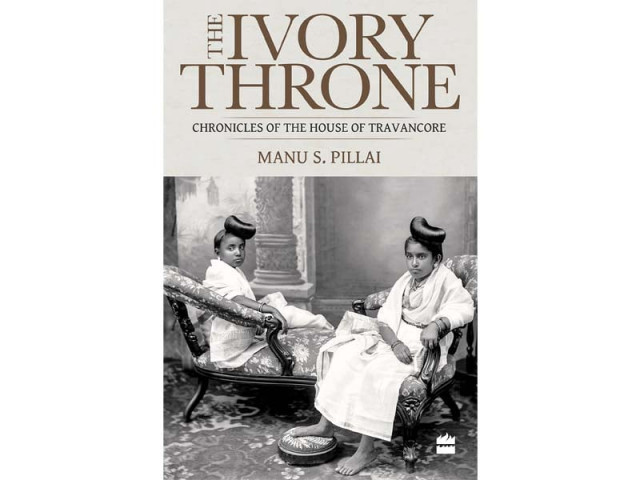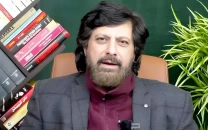Untold story of Kerala’s past
‘The Lvory Throne’ reclaims a character from history that has been abandoned

‘The Lvory Throne’ reclaims a character from history that has been abandoned.
At his book launch, Manu S Pillai, author of The Ivory Throne: Chronicles of the House of Travancore, said: “The rulers of Kerala promoted it as a land blessed by God. But behind this image of spirituality there is a violent past that is usually ignored.”
Pillai explains this further in his book. He recalls the story of Martanda Varma, a warrior who emerged as the most powerful king of the region, in the mid-18th century.
Although he controlled Travancore, locals did not accept him as their ruler and regularly rebelled against him. It was through “shrewd genius” that Martanda Varma “discovered the power of faith”.
In 1749, he performed a religious ceremony in the most important temple of Travancore, Sri Padmanabhaswamy, and assumed the title of ‘Servant of Lord’.
Book review: Fine-tooning the young mind
Pillai probes deeper into the significance of the event in his book. He writes, “In an ingenious stroke, thus, the newly conquered territories went from being rightful property of their deposed rajas to becoming the sacred estate of Sri Padmanabhaswamy. Any action against the ruler…was now, a crime against the almighty.”
Fascinating as the story is, this book is not about Martanda Varma and neither is it an all-encompassing history of Kerala.
It focuses on a particular time period in the history of this state - perhaps the most defining moment in its recent history.
Harper Lee's second novel tops 2015 US bestseller list
This is a time when the British had safely established themselves as the master of India. There was a British Resident in every independent Kingdom of India who officially only advised the ruler but was for practical purposes the final authority.
This was also a period when, impressed by the technological advancement of the British, the Indians began rejecting their indigenous identity and adopted the more “modern” European culture.
Through the course of the book, readers can see how local cultural traditions eroded and Victorian morality replaced them.
It was also a time when the Indian nationalist struggle was gaining momentum and the consequences were spilling into the kingdoms of the Maharajas.
There is inevitability about the book. As one reads about the several characters vying for the ivory throne, the reader knows that the struggle of these characters is in vain.
The author drops hints throughout the book about what would eventually be the fate of the Kingdom of Travancore. The book almost reads like a gripping fiction novel that is heading towards a climax. The climax arrives in the form of Independence, sweeping everything along with it, leaving one with a feeling of betrayal.
Taking a bold step, Pillai, does not hide behind the pretence of objectivity as several historians do. There are two main characters in the book, Sethu Lakshami Bayi, and her adopted sister and rival, Sethu Parvathi Bayi.
The former, known as the Senior Maharani, has the author’s sympathy. She is without doubt the protagonist of the story, while the latter, Junior Maharani, the antagonist.
The struggle of these two sisters which is what provides universality to the story. This could easily be a tale of two feuding sisters in Punjab or Bengal, for that matter.
The book is significant for it is one of the first attempts to reclaim a character from history that has been abandoned.
Sethu Lakshami Bayi ruled the state of Travancore as its matriarch. Her era was marked by astute political dealings and weathering of several storms. And yet, today her memory has been erased from the story of her state. This is because eventually the Junior Maharani emerged victorious and today it is her descendants who are known as the royal family of Kerala.
Another fascinating aspect of the book is the matriarchal society that existed there before the arrival of the British. Some of these traditions were fascinating and might come across as shocking to a modern reader.
The writer is an author, most recently, of ‘In Search of Shiva: A Study of Folk Religious Practices in Pakistan’ and ‘A White Trail: A Journey into the Heart of Pakistan’s Religious Minorities’
Title: The Ivory Throne : Chronicles of the House of Travancore
Author: Manu S Pillai
Publisher: Harper Collins India
ISBN: 9351776425
Price: $34.99
Published in The Express Tribune, February 14th, 2016.
Like Life & Style on Facebook, follow @ETLifeandStyle on Twitter for the latest in fashion, gossip and entertainment.



















COMMENTS
Comments are moderated and generally will be posted if they are on-topic and not abusive.
For more information, please see our Comments FAQ